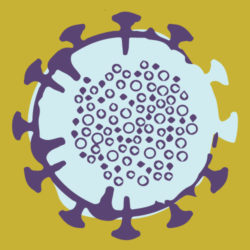The WHO visits Wuhan and vaccine scams take over the internet
Welcome to the Infodemic. We are tracking how disinformation surrounding the coronavirus crisis is reshaping our lives. Below are the narratives, both real and fake, that have grabbed our attention and deserve yours.
A World Health Organization delegation is halfway through a long-awaited visit to Wuhan and the city’s now-infamous Institute of Virology. Since the pandemic began, the Institute has been the subject of rumors and conspiracy theories linking it to the origins of Covid-19. The visitors grilled the lab’s scientists and, according to Peter Ben Embarek of the WHO’s Beijing office, nothing was off limits. Embarek said members of the group asked “very frank” questions about how the virus began to spread, offering up ideas that would make “excellent scenarios for good movies and series for the years to come.” As part of its strategy to deflect the focus away from China as ground zero for the disease, the country’s Foreign Ministry has called on the WHOto make similar visits to the U.S. and other nations.
Hundreds of thousands of Chinese students are stuck abroad, unable to go back home for the lunar New Year. But their embassies did treat them to special pandemic care packages. From Malaysia to Mexico, stranded young people are sharing pictures of “Love from the Motherland” goody bags on the Chinese social media site Weibo. A peek inside one given to a student in Ukraine revealed chocolates, masks and Lianhua Qingwen capsules, a traditional medicine that is part of the Communist Party of China’s official Covid-19 treatment plan.
The pandemic has struck another blow against press freedom in Poland, after the announcement of plans for a new tax on media advertising as part of a push to raise funds to cover pandemic costs. The government hopes to raise $213 million from the proposed levy. Officials say the money will also go towards “cultural” aims, such as helping the public“ assess the reliability of information appearing in the media.” The catch: logic dictates that publicly funded media outlets, which are used to promote the narratives of the Law and Justice party-led government, will be hit less hard than private ones. Poland plummeted to its lowest ever position on the World Press Freedom Index last year. This will only make things worse.
Anti-vax rhetoric and vaccine skepticism may be spreading far and wide, but there is still enough of a demand to create a thriving industry based on Covid-19 immunization scams. Masho Lomashvili has been digging around the dark corners of the internet to figure out what’s on offer. Keep reading below.
HOW TO STAY IMMUNE FROM COVID19 VACCINE SCAMS
by Masho Lomashvili
From fake vaccines to counterfeit negative tests, coronavirus-related scams seem to be everywhere.
One “alternative therapy center” in Quito, Ecuador managed to sell 70,000 doses of fake Covid-19 vaccine before the authorities busted it. It charged 15$ for each dose and told customers that they needed three shots for it to be fully effective.
Meanwhile, in China police confiscated 3,000 fake coronavirus shots and arrested more than 80 suspected members of a criminal ring responsible for distributing them. The purported vaccine was nothing more than salt water and the service included international shipping.
Online, ads offering branded vaccines appeared as soon as Pfizer first announced its success in developing a shot. Prices of a single alleged Pfizer dose, which should cost around $20, reach as high as $1,575 on the darknet. As an added bonus, some vendors are offering overnight delivery using discreet packaging. What’s inside or whether the purported vaccine is ever actually shipped is anybody’s guess.
An additional risk is that you never know who you are handing your personal information to when you put in an online order for a vaccine. Last December, officials in the U.S. shut down fake Moderna and Regeneron websites, which stole sensitive information from visitors. The same goes for some vaccine-related email campaigns — click on a file and it installs infostealer malware capable of gathering login information, usernames and passwords from your device.
Travel restrictions are also providing a rich source of revenue for scammers. Europol recently said that it has identified a group forging negative test results at Charles de Gaulle Airport in Paris and another selling fake certificates on British streets. Getting hold of these counterfeit documents online is easy. In Mexico it’s done through Facebook groups, while Telegram offers access to dozens of international vendors.
Hungry for more? Here are a few pieces from Coda to keep you informed this weekend:
- Google once lived by the motto “Don’t be evil.” Now, according to a Saudi Arabian dissident who spoke to us this week about the tech giant’s new cloud computing deal with the country, it “is providing a power to a brutal dictatorship.” Here’s a glimpse into a strangely underreported agreement that endangers thousands and seems to cross the company’s own red lines.
- One of the strangest images of this week was that of a military coup Zoom call in Myanmar. A dozen generals in tiny squares reversing a nation’s political path looked strangely unthreatening — if only someone could just turn off the internet. Ironically, that’s exactly what they’ve been doing, in order to clamp down on opposition voices. Now, the country is braced for even more restrictions of digital freedoms, explains our managing editor Burhan Wazir.
- Global leaders condemned the Myanmar coup, but guess who welcomed it? Mariam Kiparoidze attempts to explain why QAnon supporters are so excited.
- During the early months of the Covid-19 outbreak, Moscow was quick to deploy facial recognition systems to watch over residents who were ordered to isolate under quarantine measures. Now, authorities are using them to track down protesters who want opposition leader Alexei Navalny freed.
As always, we are tracking this and more at codastory.com and on our Coda Currents weekly podcast.
To keep you up to date with our stories, we are launching a new weekend newsletter written by our publisher Ilan Greenberg. You can sign up here.
Have a great weekend and see you next Friday,
Natalia Antelava








